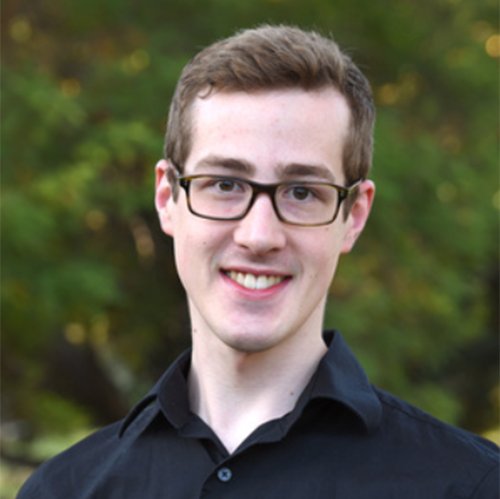Will Howitz joins Chemistry faculty as new Organic Laboratory Director

MINNEAPOLIS / ST. PAUL (07/21/2023) – The Department of Chemistry will welcome Will Howitz to the faculty in fall 2023 as an Assistant Professor and the new Organic Lab Director. Howitz joins the University of Minnesota from the School of Chemistry & Biochemistry at the Georgia Institute of Technology.
After completing his BS at Hamline University in 2015, Howitz began his doctoral studies at the University of California, Irvine (UCI). He earned his PhD in Chemistry from UCI in 2020. Howitz joined the Georgia Institute of Technology (GT) later that same year, serving as the Organic Chemistry Laboratory Coordinator for the past three years.
Howitz comes to UMN as a teaching faculty member; he holds three key values with respect to teaching. The first, equity and inclusion, recognizes that each student’s experience in the classroom is shaped by their identities, previous academic and lived experiences, support structures, and more. Howitz strives to take as much of this into account as possible when designing his courses to provide learning environments that are accessible, inclusive, and equitable. His second fundamental value is evidence-based instruction. As a scientist in the laboratory, Howitz makes claims and decisions based on evidence; the same is true when he serves as an educator in the classroom. To best support students, Howitz closely follows and contributes to the field of chemistry education research in which teaching and learning in chemistry are investigated using a variety of quantitative and qualitative methods. Lastly, Howitz believes in proficiency, not perfection. “Mistakes are part of the learning process and I believe it is critical to build opportunities into the courses I teach that allow students to learn from their mistakes without immediate penalty to their grade. This allows students to focus on the learning process to achieve proficiency in the course content rather than be concerned that they need to be near perfect on every assessment in order to earn a high grade,” Howitz says.
The undergraduate laboratory provides a space where students apply knowledge from their lecture courses and develop the hands-on skills necessary for them to be successful in a variety of future careers in STEM. In large laboratory courses that rely on many teaching assistants (TAs), the student experience can be impacted depending on how the course is structured, how experiments are designed, how students are engaged, and how TAs are trained and mentored. To better engage students and support their learning in such a laboratory environment, Howitz's chemical education research focuses on:
- The implementation of specifications grading systems to provide flexibility and a greater focus on learning over the accumulation of points to earn a grade.
- The development of inquiry-driven laboratory experiments to emulate authentic research experiences.
- The design of novel pedagogical tools to assist students with their conceptual understanding of complex topics.
- And the enhancement of TA training and professional development to ensure TAs are confident and equipped to facilitate student learning in a laboratory setting.
Howitz enjoys mentoring students on his research projects. While at UCI, he mentored a total of seven undergraduate students and at GT, he mentored a total of nine undergraduate students. The collective contributions of these students have resulted in four publications to date. Howitz is enthusiastic about working with any undergraduate and graduate students interested in chemical education at UMN.
At UMN, Howitz says he is looking forward to working with new colleagues to refine the organic chemistry curriculum. When he’s not in the classroom, he enjoys reading a wide variety of literature, working on puzzles, hiking, and trying out new recipes in the kitchen.